I played Wanderstop in August. I absolutely loved this game, and it was an easy pick for me to write about since I couldn’t stop thinking about it even weeks after completion.
When the game came out in March this year, I’ve seen some reviewers recommend playing it without looking it up too much, so I avoided watching any videos or reading about the game. I didn’t know anything about the game’s director, Davey Wreden, except that he had released well-acclaimed indie titles such as The Stanley Parable and The Beginner’s Guide. Since I’m relatively new to gaming, having resumed the hobby mid-2022, I didn’t know these titles either. In summary, I went into the game totally blind, except for having seen some of the beautiful visuals and knowing that it was a “game about change and tea” (according to Steam).
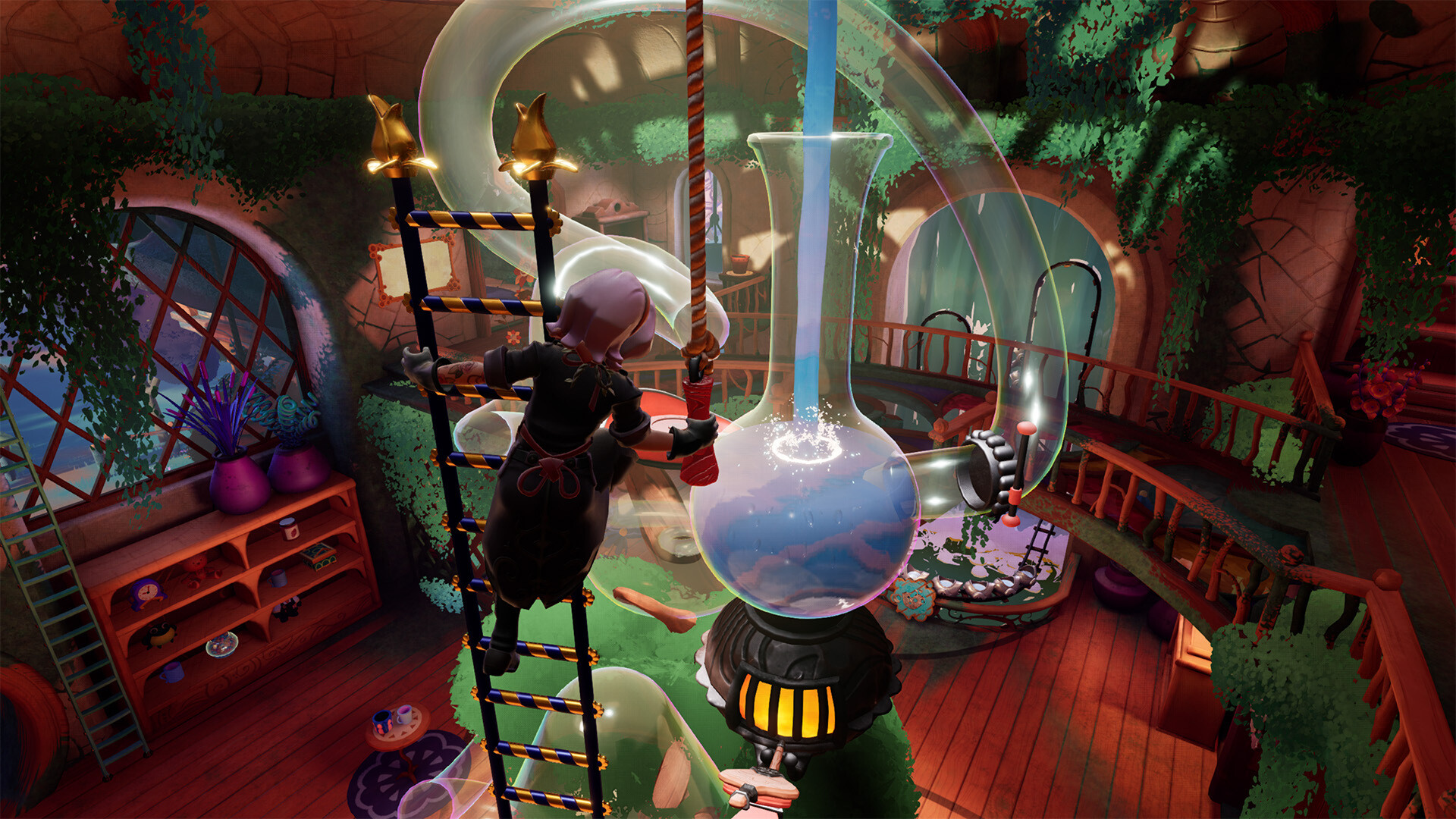
When I was doing some research about Wanderstop’s creation in preparation to write this piece, I found an interview (Escapist magazine) where Wreden mentioned that he was “extraordinarily burnt out” after releasing The Stanley Parable and The Beginner’s Guide, and that this played a factor in the game’s initial development. In this other interview with the NY Times , titled “A Burned-Out Designer Tried to Heal by Making a Cozy Game”, Wreden goes into detail about his own healing journey and the vision for Wanderstop, and his collaboration with Karla Zimonja, the game’s narrative lead and Ivy Road’s co-founder.
Knowing a bit more about the game’s background and reading about the creative process gave me even more fuel to write this post. I decided to make it spoiler-free, but if you haven’t played it yet, I recommend taking a moment to consider if you would prefer to save the post for later. Grab a cup of tea and let’s start 🍵
The story
In this game, you play as Alta, a fighter dealing with the aftermath of her first defeat in years. Alta ends up in Wanderstop, a tea shop, after she passed out in the forest while looking for a famous master to train her. The friendly shop owner, Boro, listens to her story and suggests that she stays around to relax and work at the shop at her own pace. She agrees, since for some odd reason she can’t carry her sword (even though Boro is able to), but in reality Alta can’t wait to get out of there and fix whatever is wrong with her.
Fighting productivity instincts
At first I wondered if Wanderstop would be similar to other management and farming cozy games — the main gameplay consisting of planting some seeds, watering the plants once a day, fulfilling customers’ requests, going to bed, and rinse and repeat the next day — but maybe with more weight given to the story? Very soon I realized that even though some of the gameplay elements in Wanderstop might resemble other games, it is unique in both how & why you do things. I’ll explain.
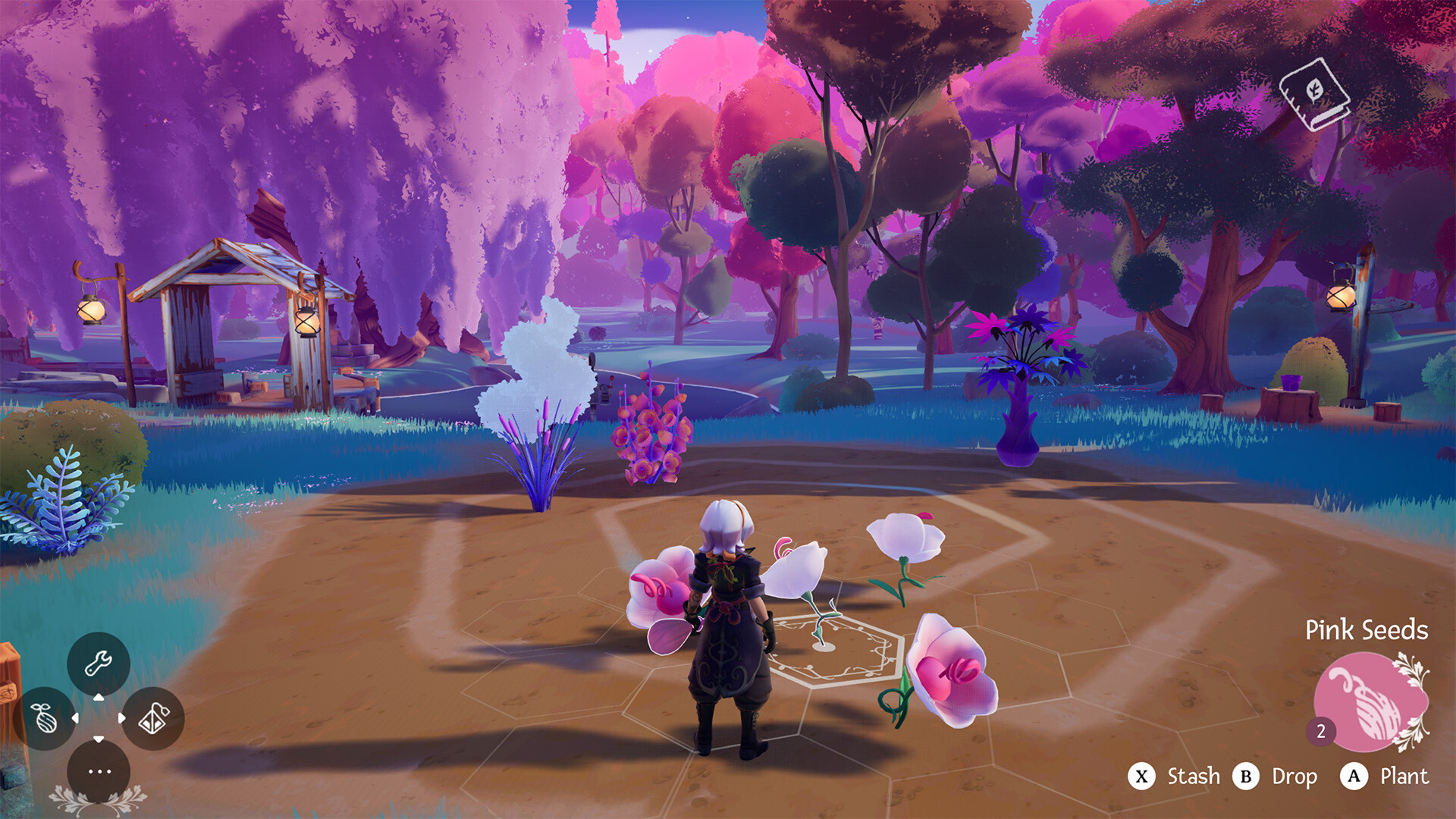
This is probably the first game where I really felt I could do whatever I wanted. And not in a Stardew Valley kind of way, where I can do whatever I want, but I’m obviously going to go pet my chicken, get some eggs, sell some mayo, give an amethyst to Abigail, get that ore in the mines, go to bed before passing out, etc. (If you don’t play Stardew Valley like that, by the way, I commend you.)
Right at the start, your buddy Boro tells you that there are no deadlines to do anything; that sometimes the visitors passing by don’t even want tea, they might just want to talk. You can choose if you want to collect tea leaves, plant some fruit, sweep some leaves, take pictures with the camera, or even make tea for yourself. It’s your call.
There’s no day-night cycle, so there’s no pressure to finish everything you’re planning to in a day, or worrying about passing out because you didn’t go to bed before 2AM. At any given point, you never have more than a couple of requests (if any at all). There’s no currency in the game. No upgrades. No way to make your tea in a more optimized way.
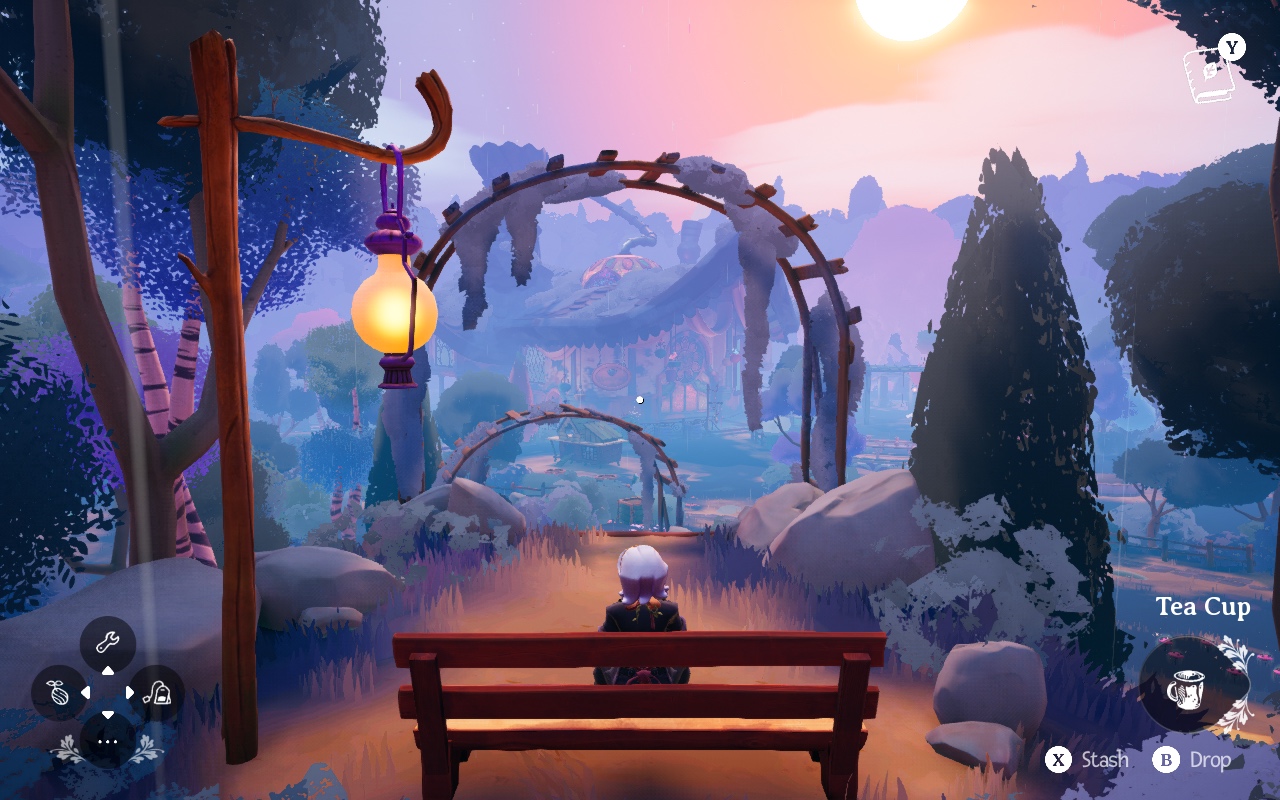
When it comes to planting the fruit for your tea, the mechanics are pretty unique. You collect the seeds in the area around the shop, plant them in a grid-like system – depending on the types of seeds and how you plant them, you get different crops. Watering the plants makes them produce fruit right away, but after harvesting them a few times, they stop producing new ones.
Yes, you still need to serve tea to your customers to progress the story – and that means following specific steps to brew it – but the game never rushes you to do it. The actual tea-making gets progressively more challenging, when the orders become a bit more complex and specific, but you never suffer a serious penalty if you end up doing something wrong.
Merging gameplay and narrative
Have you ever played a game and had that feeling that the gameplay got in the way of the story? Maybe you even thought you couldn’t wait to be over with a game, but you needed to push it through just to know what happens?
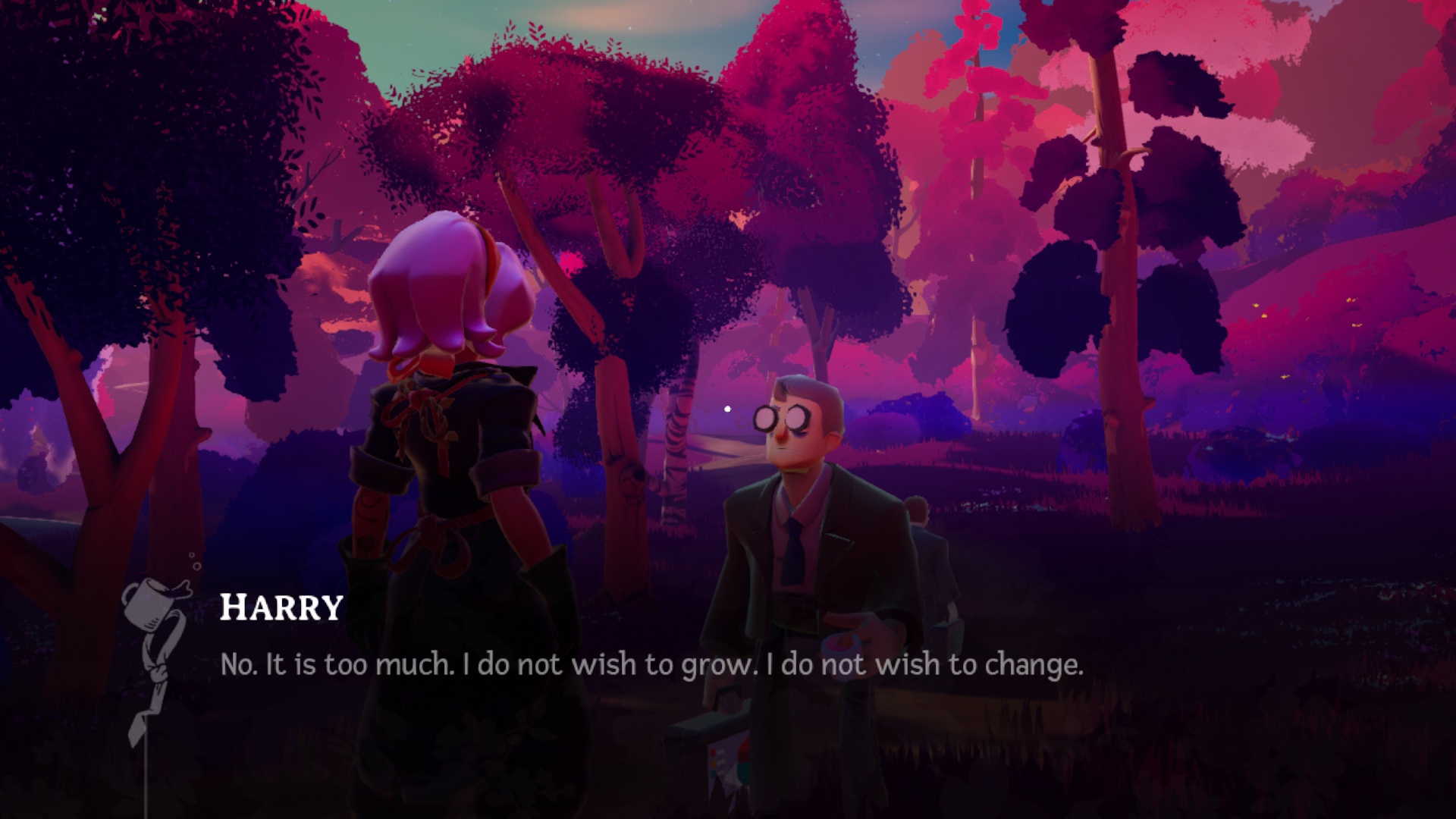
Very often, it seems to me that story or narrative games feel the need to introduce some intricate mini-games or mechanics so that they will still be considered a “proper game”. It can end up feeling clunky and giving that feeling of filler – that the gameplay is actually delaying the outcome of the story.
Wanderstop manages to avoid this situation by making its gameplay inseparable from Alta’s journey. At first, just like Alta, you might have the instinct to try and be as productive as you can, only to realize you don’t really have to.
You also experience the uncertainty of the future as you play. Alta is a fighter. She likes fighting, she’s good at it (or at least she felt that way before her defeat), she wants to do it more. But she just can’t do it at the moment. While you’re running the shop, you’re not quite sure about what’s going to happen. Will she be able to figure out how to become a fighter again? Is she going to get help from the master she was looking for before? Just like in real life, her healing doesn’t follow a plan, it can’t be sped up nor have an easy fix. Tending to the tea shop becomes an important step in Alta’s journey, as she comes to face her current reality.
Closing thoughts
Wanderstop led me to many personal reflection moments while playing it.
Even though I am not as passionate of a person as Alta, it made me think a lot about what happens when you’re unable to do something you truly love because you’re burnt out.
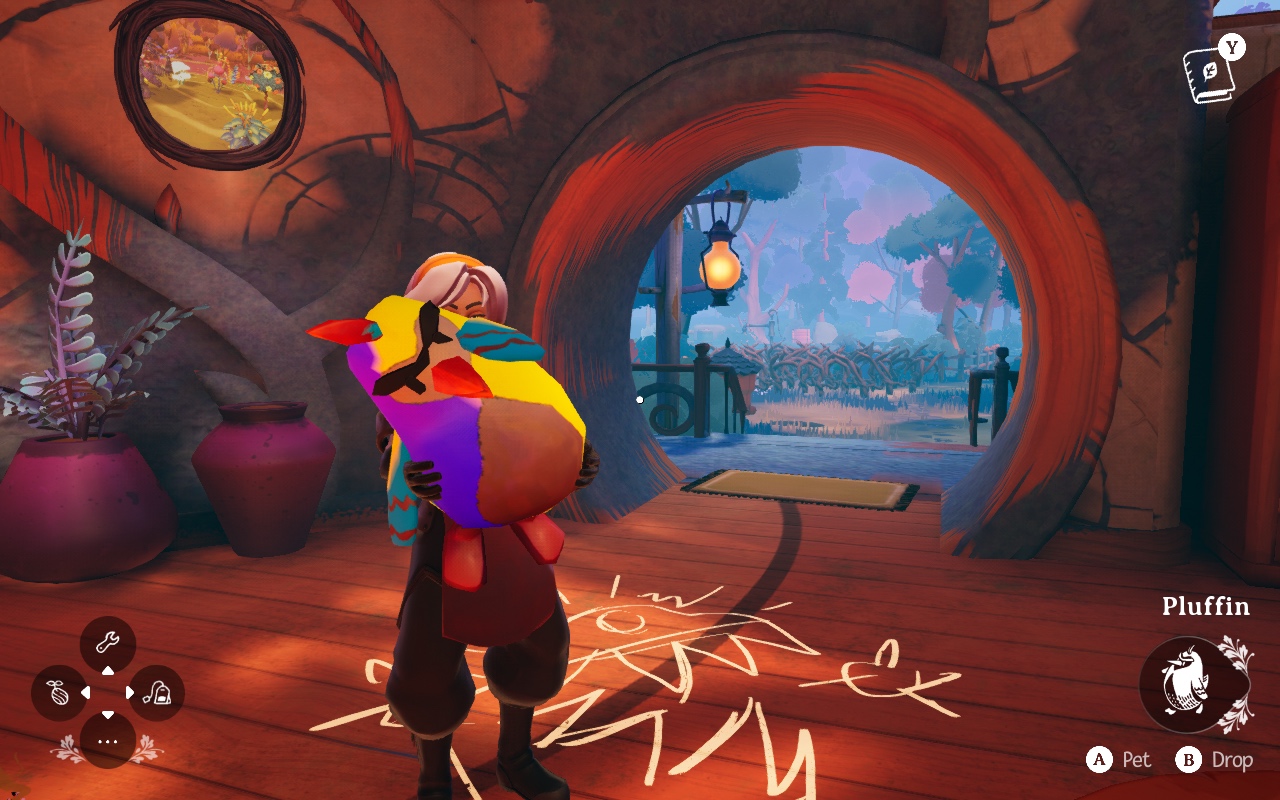
As someone that has had to deal with mental health issues, I know the pain of really wanting to do something (or desiring not to feel a certain way) but not having control over it. And how in fact, sometimes wanting to have control can just make things worse. Resting is hard, acceptance is even harder.
This game touched me deeply, but I don’t think that you necessarily need to have gone through burn out or have had mental health issues to be able to appreciate it or put yourself in Alta’s shoes. If you think the themes I approached here are interesting, but you also like the idea of gathering resources, planting fruit and brewing tea in a game, I definitely recommend playing Wanderstop. If you want a grindier game that gives you multiple quests, a progression system with upgrade options, or if you dislike farming or tea preparation mechanics, I would recommend against this one.
Practical information
Wanderstop is available for PC, Xbox Series X/S and PS5.
I completed the game in about 11 hours.
I played it on the Steam Deck and it ran well, even though the fan was really active during my time playing.
Thank you for reading!
-Luna

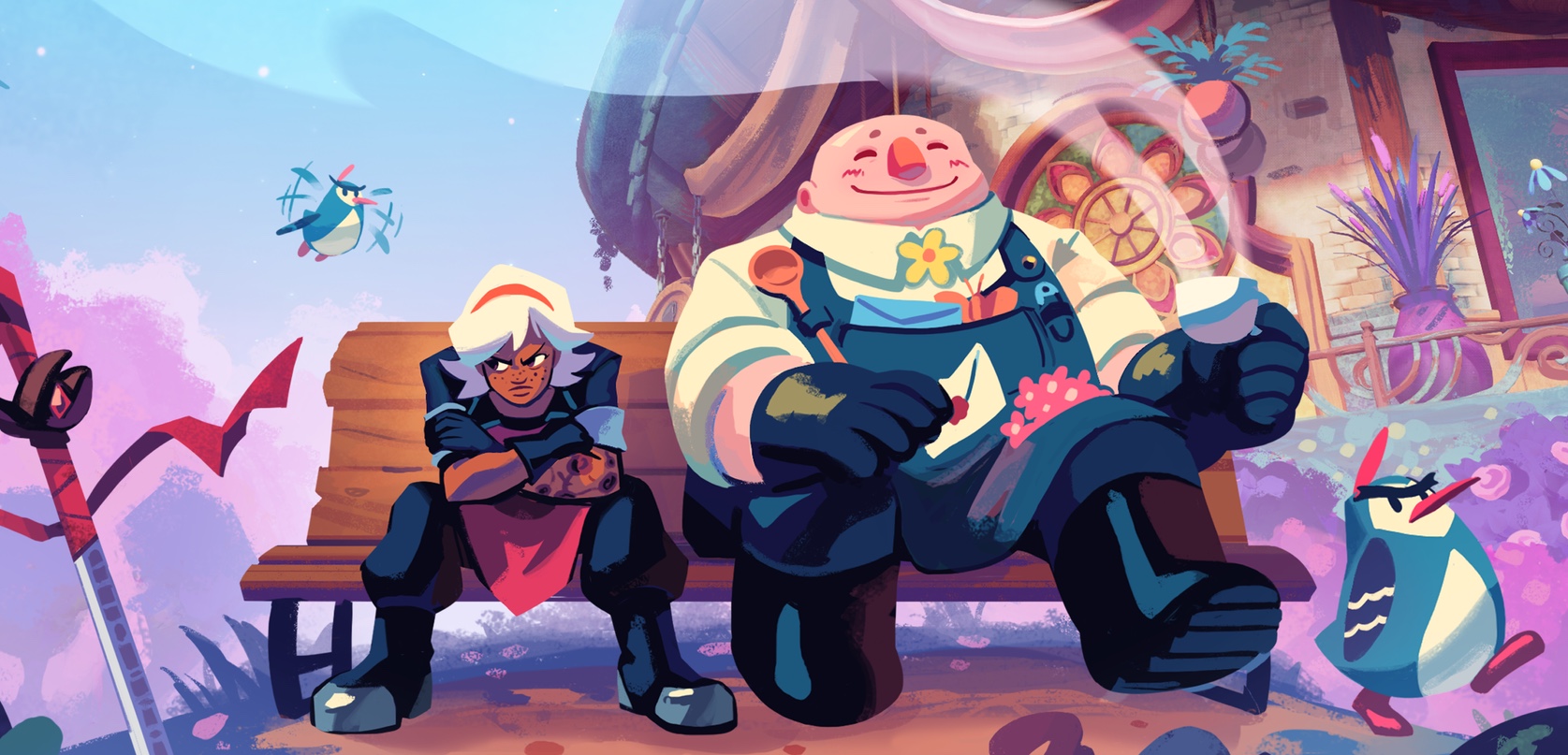
Leave a Reply